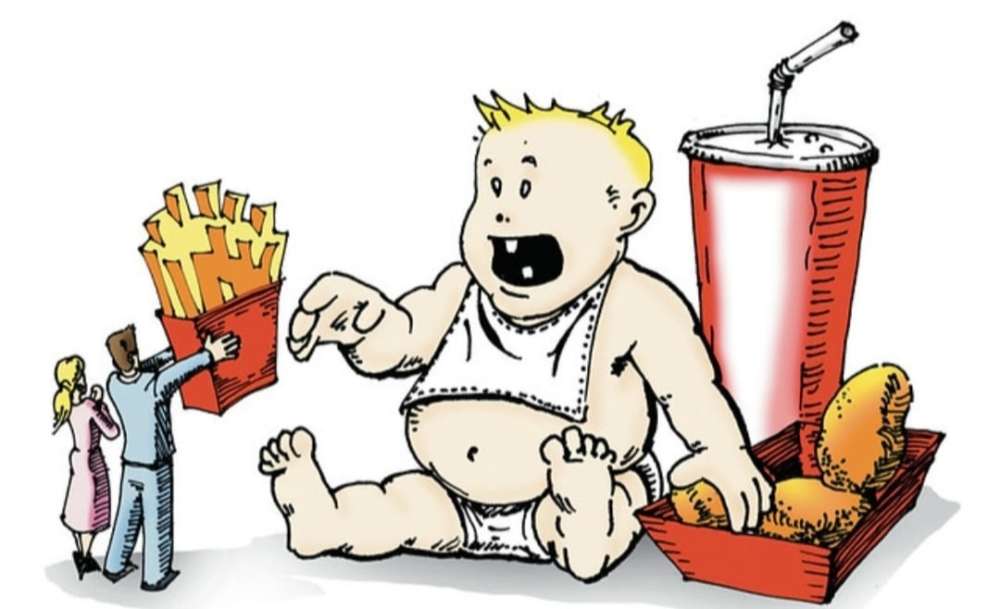1. Nowadays school students suffer from obesity mostly. How can we help them?
A healthy lifestyle begins at home. Parents should discourage their kids from snacking on unhealthy foods between meals or while watching TV, for instance. This kind of mindless eating is a major cause of childhood obesity. Buy fewer high-calorie, low nutrient foods like processed foods, breakfast cereals etc. Involve your children in planning, shopping and preparing meals so that they are more aware of what they are putting into their bodies. Encourage physical activity; ensure they spend 1-2 hours in some form of sport or outdoor activity daily. Restrict screen time and encourage them to sleep on time. Finally, be a good role model. As parents, you can expect your children to inculcate healthy habits if you showcase them yourselves. Overall, the most important strategies for preventing childhood obesity are healthy eating behaviours, regular physical activity, and reduced sedentary activity (such as watching television, surfing the net, videogames etc). These preventative strategies are part of a healthy lifestyle that should be developed during early childhood.
2. What can schools do to prevent this?
Schools have an opportunity to improve the health and tackle obesity in children at an ideal time, before problems set in. Nutrition and physical education can be woven into the curriculum to teach skills that help students choose and maintain healthy lifestyles. Physical education should focus on getting students engaged in high-quality and regular activity. Schools that have a cafeteria, should include healthier food options and eliminate marketing of unhealthy food.
3. How does it affect a child mentally? Does it affect their self-confidence?
Childhood obesity can lead to sleeping disorders, anxiety, depression, and low self-esteem. Obesity can make it harder for kids to participate in activities and socialise. Kids also become a target for bullying. Many children will experience being teased or bullied, because of their excessive weight. Trying to reach that ideal body weight takes a toll on their self-esteem and this in turn could lead to depression. The constant exposure to ‘ideal body types’ on the internet, TV and in cinema could further dampen their self-esteem.
4. Obese children get bullied more often. According to you, what can schools do to prevent this?
The schools are in a position to provide more protection and support to children and their parents. Bullying occurs for a large part within the school’s premises. As part of the curriculum, students should be taught to identify bullying language and actions. They should also be taught positive communication skills. Encourage children to have classroom discussions on the motivation and effects of bullying. An open discussion creates a more positive environment where bullying is less likely to occur. There should be an established system for a child to report being bullied, (anonymously, if needed) and get immediate help. Counselling should be provided to the children involved and their families to determine a solution and to avoid future occurrences. Schools should have a zero tolerance policy on bullying. Installation of CCTV cameras can potentially deter incidences of ragging and bullying. With the joint efforts of the school, children and parents, schools can be a safe and healthy experience.
5. Do male obese students get more bullied than female students? If so, then why do you think that happens?
Obese children are more likely to be bullied regardless of gender. The patterns of bullying may vary where in male obese children more often experience overt bullying victimisation than girls. Other children may engage in verbal name calling or attach a negative stereotype to obese children and associate them with being lazy and incompetent.
6. What are parents’ roles in preventing their children from becoming obese?
Attention to this should start in pregnancy. In our culture, pregnant women tend to be overfed. Overeating and excess weight gain in pregnant women can increase their risk of developing gestational diabetes leading to elevated blood sugars. If left uncontrolled, it can affect the health of the baby. Elevated blood sugar levels increases the baby’s insulin and blood sugar levels, and acts as a source of excess energy, which is then stored as fat. This increases the risk of obesity and development of Type 2 diabetes in the child later in life. Instead, pregnant women should have nutritious food and ditch high calorie food.
Once the child is born, ensure to nurse the baby on-demand. Once solid foods is introduced in the baby’s diet, limit or avoid empty calorie junk food and sugary drinks. Small pieces of soft fruit or cooked vegetables are good snacks to start with. Introducing your child to a healthy and balanced diet right from the start, will help create the foundation for healthy eating habits as he or she grows. The perception that a chubby child is a healthy child needs to be changed. Introduce physical activity right from early childhood. Consider schools that give due importance to physical education.


